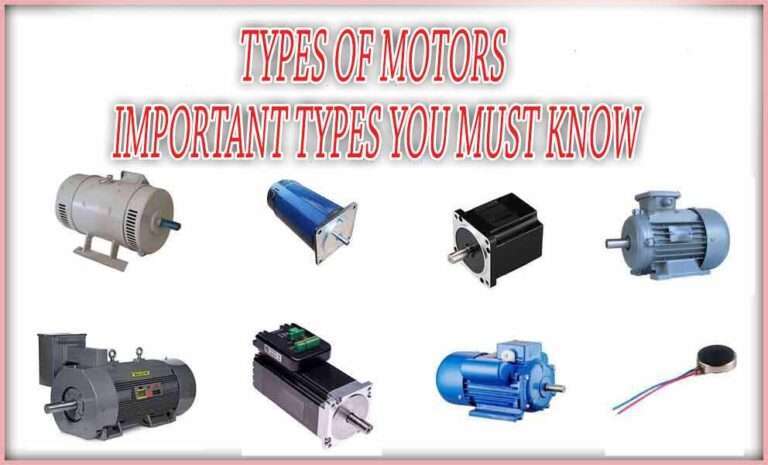Career Opportunities in Smart Grid Technology
Smart grid technology is one of the most significant advancements in the power sector. It combines traditional electricity networks with modern digital communication, automation, and intelligent control systems. The primary aim of smart grids is to make power distribution more reliable, efficient, and sustainable. As the world transitions to renewable energy and electric vehicles, the demand for smart grid solutions is growing at a rapid pace. This growth is opening new job roles and career opportunities for engineers, IT specialists, and energy professionals.
Table of Contents
Table of Contents

The power industry is undergoing a major transformation, driven by the integration of solar, wind, and storage technologies. Smart grids are the backbone of this transformation, enabling real-time monitoring, predictive maintenance, and efficient energy management. Governments and private companies are investing heavily in smart grid infrastructure, which means skilled professionals are in high demand.
For students, fresh graduates, and working engineers, understanding career opportunities in smart grid technology is crucial. It provides a pathway to work on innovative solutions, build a stable career, and contribute to a sustainable energy future. Companies are looking for professionals who can bridge the gap between electrical engineering and information technology.
Key Takeaways
- Smart grid technology is reshaping the global power industry.
- Career opportunities are available in engineering, IT, data science, policy, and management.
- High salaries, global demand, and long-term job security make smart grids a lucrative field.
- Professionals with knowledge of renewable energy, IoT, and cybersecurity will have the strongest career growth.
Introduction to Career Opportunities in Smart Grid Technology
The concept of the smart grid is not just about advanced meters or automatic switching. It represents an intelligent ecosystem where energy is generated, distributed, and consumed efficiently. Smart grids allow two-way communication between utilities and consumers, providing better load balancing, reduced losses, and improved reliability. The rising adoption of electric vehicles, rooftop solar panels, and energy storage systems further highlights the need for skilled professionals.
Career opportunities in smart grid technology are diverse and include both technical and non-technical fields. Engineers are required to design and maintain electrical systems, while IT specialists develop software solutions for data handling and cybersecurity. At the same time, business analysts, policymakers, and project managers are needed to guide the strategic direction of smart grid projects.
Know more about Smart Grid Technology Courses
Why Career Opportunities in Smart Grid Technology are Growing
There are several drivers behind the growth of careers in smart grid technology. The global shift toward renewable energy requires flexible and adaptive power systems. Traditional grids cannot handle the fluctuations caused by solar and wind power, but smart grids can. This is why governments across Europe, Asia, and North America are investing billions of dollars into modern grid infrastructure.
Another driver is the electrification of transport. Electric vehicles are increasing the demand on distribution networks. Smart grids help manage this additional load and ensure stable supply. Similarly, industries and commercial buildings are adopting energy management systems that rely on smart grid principles.
As these technologies expand, the need for skilled professionals becomes urgent. From power engineers to cybersecurity experts, the smart grid sector provides career stability and long-term opportunities.
Major Career Opportunities in Smart Grid Technology
When discussing career opportunities in smart grid technology, it is important to cover multiple domains. The following roles highlight the most promising fields where professionals can build careers.
Electrical Engineers in Smart Grid Projects
Electrical engineers are the backbone of smart grid systems. Their expertise is required in designing substations, transmission lines, distribution systems, and automation equipment. Smart grid projects require engineers who understand power electronics, protection systems, and control mechanisms.
An electrical engineer in smart grid projects may work on advanced metering infrastructure, grid integration of renewable energy, or energy storage systems. Knowledge of IEC and IEEE standards is highly valued.
IT and Software Specialists in Smart Grids
Smart grids rely heavily on data. Advanced metering systems, IoT devices, and SCADA platforms produce large amounts of information every second. IT specialists are needed to manage this data, develop predictive algorithms, and ensure smooth integration of hardware and software systems.
Know more about Smart Grid Technology Companies in India
Careers for IT professionals include software development, cloud computing, and artificial intelligence applications for grid management. Cybersecurity is also a critical domain, as smart grids are vulnerable to hacking and cyberattacks. Specialists in this field are among the highest paid in the smart grid industry.
Data Scientists and Analysts
Data is the fuel of smart grids. Every device connected to the grid produces valuable information. Data scientists are responsible for analyzing this data to predict demand, identify faults, and improve efficiency. They use tools like Python, R, and machine learning models to provide insights for utility companies.
The role of data analysts is growing because utilities need real-time decision-making. For example, predicting electricity demand in peak hours helps prevent blackouts. Data-driven decisions are central to modern energy systems, making this one of the most promising career opportunities in smart grid technology.
Renewable Energy Integration Experts
Smart grids are closely linked with renewable energy. Engineers specializing in solar, wind, and hydropower integration are needed to ensure that renewable sources work efficiently with the grid. These professionals design inverters, manage distributed energy resources, and create storage solutions.
Since renewable energy is growing rapidly, this specialization offers long-term career stability. Professionals with expertise in power electronics, grid codes, and system modeling have a competitive advantage.
Know more about Smart Grid Technology Companies in Germany
Smart Grid Policy and Regulatory Specialists
Apart from technical jobs, career opportunities in smart grid technology extend to policy and regulation. Governments need professionals who understand energy markets, pricing mechanisms, and legal frameworks. Policy specialists help create roadmaps for clean energy transition and ensure compliance with standards.
This role is crucial in countries adopting large-scale smart grid projects. Professionals in this field often work with international organizations, research institutes, and government bodies.
Project Managers and Business Analysts
Every smart grid project requires efficient management. Project managers and business analysts play an important role in budgeting, resource allocation, and stakeholder communication. They bridge the gap between engineers, IT professionals, and policymakers.
Business analysts also evaluate the economic benefits of smart grid investments. They analyze return on investment, market adoption, and long-term profitability. This makes their role vital in both private companies and public utilities.
Know more about Energy Management System in Smart Grid
Table: Career Opportunities in Smart Grid Technology
| Career Role | Required Skills | Typical Employers | Salary Range (USD/year) |
|---|---|---|---|
| Electrical Engineer | Power systems, protection, IEC standards | Utilities, EPC companies | 60,000 – 120,000 |
| IT Specialist | Software, IoT, cybersecurity | Tech firms, utilities | 70,000 – 130,000 |
| Data Scientist | AI, ML, big data analytics | Energy firms, startups | 80,000 – 140,000 |
| Renewable Energy Engineer | Power electronics, grid integration | Solar/wind companies | 65,000 – 125,000 |
| Policy Specialist | Energy laws, market design | Government, NGOs | 55,000 – 100,000 |
| Project Manager | Leadership, cost management | EPC, utilities | 75,000 – 130,000 |
Required Skills for Career Opportunities in Smart Grid Technology
Professionals entering this field must develop both technical and soft skills. Technical skills include knowledge of SCADA systems, communication protocols, automation, and renewable integration. Soft skills such as problem-solving, teamwork, and project management are equally important.
One of the most valued skills today is cybersecurity. Since smart grids are connected to the internet, they are vulnerable to cyber threats. Utilities are willing to pay premium salaries for experts in this domain. Similarly, data science skills are in demand, as decision-making depends heavily on accurate predictions.
Global Demand for Smart Grid Professionals
Career opportunities in smart grid technology are not limited to one country. The demand is global. The United States, European Union, China, India, and the Middle East are all investing heavily in grid modernization. According to international energy reports, the global smart grid market is expected to reach trillions of dollars within the next decade.
For professionals, this means mobility and career growth across regions. Engineers and IT specialists can find opportunities in international companies, research organizations, and government projects.
Challenges and Future of Smart Grid Careers
Although the opportunities are immense, challenges exist. Smart grids are still in the development phase in many countries. Lack of skilled professionals, high implementation costs, and cybersecurity risks remain barriers. However, these challenges also create opportunities for innovative solutions and research.
The future of career opportunities in smart grid technology is promising. With the global focus on clean energy, digitalization, and sustainability, smart grid professionals will continue to be in demand. Professionals who adapt to emerging technologies such as blockchain, AI-driven energy management, and vehicle-to-grid systems will have the best prospects.
Conclusion
Career opportunities in smart grid technology are vast and rewarding. From electrical engineers to IT specialists, from policymakers to data scientists, the field offers diverse roles with high salaries and global demand. As nations work toward cleaner and smarter energy systems, skilled professionals will play a central role.
The transition to smart grids is not just a technological change but a career revolution. It is creating a new generation of professionals who will shape the future of power systems. For students and job seekers, now is the right time to invest in learning and skill development. The smart grid industry promises innovation, stability, and long-term growth for those who are ready to embrace the opportunity.
Follow Us on Social:
Subscribe our Newsletter on Electrical Insights for latest updates from Electrical Engineering Hub
#CareerOpportunitiesInSmartGridTechnology, #SmartGridCareers, #FutureOfEnergy, #SmartGridJobs, #SmartGridTechnology, #EnergyCareers, #PowerSystemsJobs, #GreenEnergyCareers, #RenewableEnergyJobs, #ElectricalEngineeringCareers, #SmartGridInnovation, #SmartGridFuture, #DigitalEnergyCareers, #SmartGridProfessionals, #EnergySectorCareers


